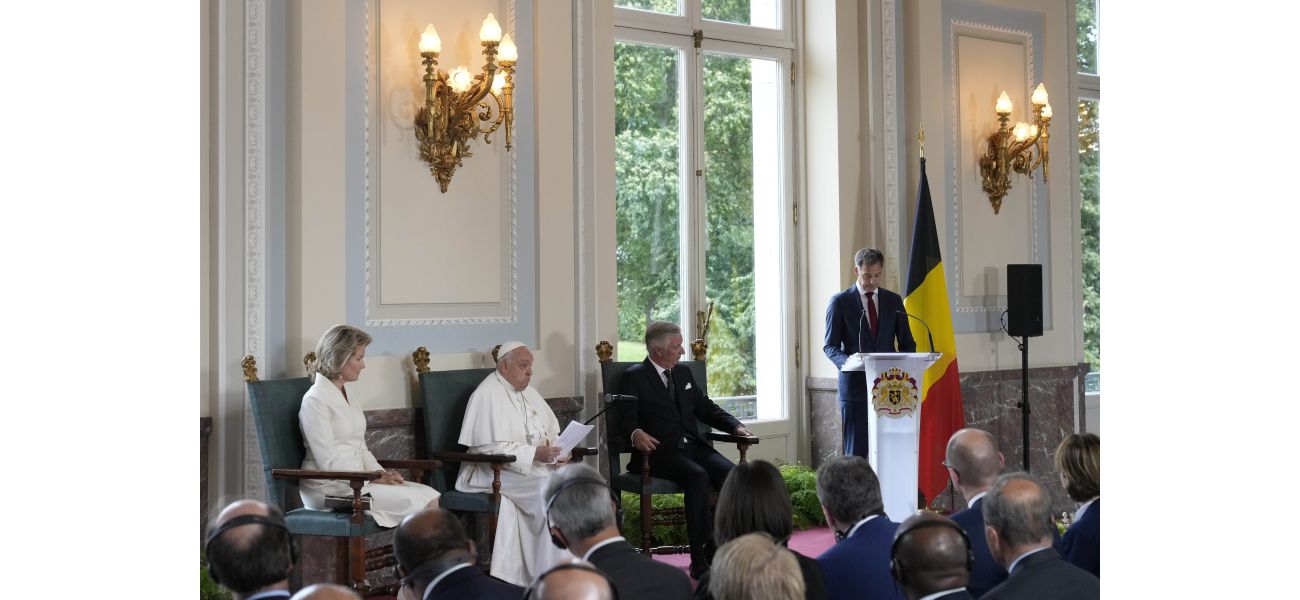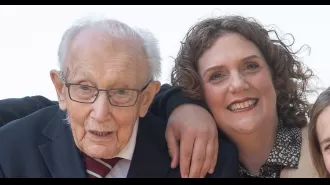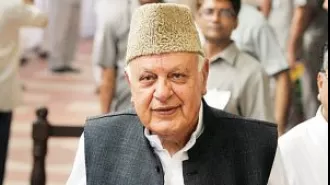Belgian leaders confront Pope Francis over church's mishandling of sexual abuse cases.
Belgian PM confronts Pope over Church's history of sexual abuse and cover-ups, calls for action to address the past.
September 27th 2024.

During Pope Francis' visit to Belgium, the country's prime minister, Alexander De Croo, did not hold back in addressing the Catholic Church's history of sexual abuse and cover-ups. In a powerful speech, De Croo demanded that concrete actions be taken to acknowledge and prioritize the needs of victims over the interests of the church.
This was not the first time that the abuse scandal had been brought to light in Belgium. Over the past two decades, numerous revelations of abuse and cover-ups have shaken the credibility of the Catholic hierarchy and led to a decline in the influence of the once-powerful church. King Philippe also spoke out, urging the church to work tirelessly to atone for their crimes and help victims heal.
The rawness of the scandal was evident in the tone of both De Croo and the king. It was a clear indication that the wounds caused by the abuse are still very much present in the country. Despite this, Pope Francis was applauded at the end of De Croo's speech and was scheduled to meet with victims in private later that day.
In his response to De Croo's speech, Francis acknowledged the gravity of the situation, saying, "This is our shame and humiliation." He also stated that words alone were not enough and that concrete steps needed to be taken to address the issue. De Croo emphasized the importance of listening to victims, recognizing the wrongdoing, and ending any attempts to cover up the abuse.
Victims of the abuse welcomed the strong words from both De Croo and the king. Emmanuel Henckens, a survivor, said that they had finally touched on the root of the problem and that it was no longer possible to turn a blind eye. However, another survivor, Koen Van Sumere, stressed the need for the church to go beyond words and provide substantial reparations to the victims.
Van Sumere referred to a call for the establishment of a universal church system of reparations, something that the Vatican may not be willing to entertain as they have previously stated that local churches should handle any financial settlements with victims. He emphasized that forgiveness and reconciliation could not be achieved solely through apologies, but also through taking responsibility and compensating the victims for the damages they have suffered.
The abuse scandal in Belgium has been ongoing for over a quarter-century, with new revelations emerging every few years. In 2010, the country's longest-serving bishop, Bruges Bishop Roger Vangheluwe, was allowed to resign without punishment after admitting to sexually abusing his nephew for 13 years. It was not until earlier this year that Pope Francis defrocked Vangheluwe, in an attempt to address the outrage among Belgians before his visit.
The scandal resurfaced in a shocking way last year when a Flemish documentary, "Godvergeten," aired on public broadcaster VRT. For the first time, Belgian victims shared their stories on camera, exposing the extent of the abuse, the heinous nature of the crimes, and the systematic cover-up by the Catholic hierarchy. Both King Philippe and De Croo delivered their strongest remarks about abuse in Dutch, the language spoken in the predominantly Catholic Flanders region where the abuse cases have gained the most notoriety.
De Croo's speech was also outside the usual Vatican protocol, as it is typically only the king who addresses the pope. However, De Croo's office had requested that he be given the opportunity to speak, similar to when Prime Minister Justin Trudeau addressed the pope alongside Canada's governor-general.
In his remarks, Pope Francis stated that the church was taking firm and decisive steps to address the problem by implementing prevention programs, listening to victims, and accompanying them in their healing journey. However, after being confronted by the prime minister and king, Francis deviated from his prepared remarks and expressed the church's shame for the scandal, vowing to do everything in their power to prevent it from happening again.
Victims have called for the church to do more, including implementing robust reparations programs to compensate them for their trauma and provide lifelong therapy. Some victims even wrote a letter outlining their demands, which they planned to deliver to Pope Francis during their private meeting.
The prime minister, king, and pope also addressed another scandal plaguing Belgium, involving forced adoptions by the church. From the 1940s to the 1980s, many single mothers were forced to give up their babies for adoption, with nuns often snatching the newborns from their mothers' arms. Money exchanged hands in the process, and records have since been destroyed, making it nearly impossible for those adopted to find their birth mothers.
Francis expressed his sadness upon learning about these practices but stated that they were unfortunately a reflection of the prevailing views in society at the time. This was similar to his response when he met with survivors of Ireland's forced adoptions in 2018. It is an issue that hits close to home for the Argentine pope, given his country's history of forced adoptions during the 1970s military dictatorship.
The visit of Pope Francis to Belgium was marked by powerful speeches and heartfelt pleas for justice and healing from the victims of clerical sex abuse. While the words of the prime minister and king were welcomed by victims, they also stressed the need for the church to take concrete actions and provide reparations to truly achieve forgiveness and reconciliation. It remains to be seen what steps the Vatican will take to address the ongoing scandal in Belgium and provide justice for the victims.
This was not the first time that the abuse scandal had been brought to light in Belgium. Over the past two decades, numerous revelations of abuse and cover-ups have shaken the credibility of the Catholic hierarchy and led to a decline in the influence of the once-powerful church. King Philippe also spoke out, urging the church to work tirelessly to atone for their crimes and help victims heal.
The rawness of the scandal was evident in the tone of both De Croo and the king. It was a clear indication that the wounds caused by the abuse are still very much present in the country. Despite this, Pope Francis was applauded at the end of De Croo's speech and was scheduled to meet with victims in private later that day.
In his response to De Croo's speech, Francis acknowledged the gravity of the situation, saying, "This is our shame and humiliation." He also stated that words alone were not enough and that concrete steps needed to be taken to address the issue. De Croo emphasized the importance of listening to victims, recognizing the wrongdoing, and ending any attempts to cover up the abuse.
Victims of the abuse welcomed the strong words from both De Croo and the king. Emmanuel Henckens, a survivor, said that they had finally touched on the root of the problem and that it was no longer possible to turn a blind eye. However, another survivor, Koen Van Sumere, stressed the need for the church to go beyond words and provide substantial reparations to the victims.
Van Sumere referred to a call for the establishment of a universal church system of reparations, something that the Vatican may not be willing to entertain as they have previously stated that local churches should handle any financial settlements with victims. He emphasized that forgiveness and reconciliation could not be achieved solely through apologies, but also through taking responsibility and compensating the victims for the damages they have suffered.
The abuse scandal in Belgium has been ongoing for over a quarter-century, with new revelations emerging every few years. In 2010, the country's longest-serving bishop, Bruges Bishop Roger Vangheluwe, was allowed to resign without punishment after admitting to sexually abusing his nephew for 13 years. It was not until earlier this year that Pope Francis defrocked Vangheluwe, in an attempt to address the outrage among Belgians before his visit.
The scandal resurfaced in a shocking way last year when a Flemish documentary, "Godvergeten," aired on public broadcaster VRT. For the first time, Belgian victims shared their stories on camera, exposing the extent of the abuse, the heinous nature of the crimes, and the systematic cover-up by the Catholic hierarchy. Both King Philippe and De Croo delivered their strongest remarks about abuse in Dutch, the language spoken in the predominantly Catholic Flanders region where the abuse cases have gained the most notoriety.
De Croo's speech was also outside the usual Vatican protocol, as it is typically only the king who addresses the pope. However, De Croo's office had requested that he be given the opportunity to speak, similar to when Prime Minister Justin Trudeau addressed the pope alongside Canada's governor-general.
In his remarks, Pope Francis stated that the church was taking firm and decisive steps to address the problem by implementing prevention programs, listening to victims, and accompanying them in their healing journey. However, after being confronted by the prime minister and king, Francis deviated from his prepared remarks and expressed the church's shame for the scandal, vowing to do everything in their power to prevent it from happening again.
Victims have called for the church to do more, including implementing robust reparations programs to compensate them for their trauma and provide lifelong therapy. Some victims even wrote a letter outlining their demands, which they planned to deliver to Pope Francis during their private meeting.
The prime minister, king, and pope also addressed another scandal plaguing Belgium, involving forced adoptions by the church. From the 1940s to the 1980s, many single mothers were forced to give up their babies for adoption, with nuns often snatching the newborns from their mothers' arms. Money exchanged hands in the process, and records have since been destroyed, making it nearly impossible for those adopted to find their birth mothers.
Francis expressed his sadness upon learning about these practices but stated that they were unfortunately a reflection of the prevailing views in society at the time. This was similar to his response when he met with survivors of Ireland's forced adoptions in 2018. It is an issue that hits close to home for the Argentine pope, given his country's history of forced adoptions during the 1970s military dictatorship.
The visit of Pope Francis to Belgium was marked by powerful speeches and heartfelt pleas for justice and healing from the victims of clerical sex abuse. While the words of the prime minister and king were welcomed by victims, they also stressed the need for the church to take concrete actions and provide reparations to truly achieve forgiveness and reconciliation. It remains to be seen what steps the Vatican will take to address the ongoing scandal in Belgium and provide justice for the victims.
[This article has been trending online recently and has been generated with AI. Your feed is customized.]
[Generative AI is experimental.]
0
0
Submit Comment





